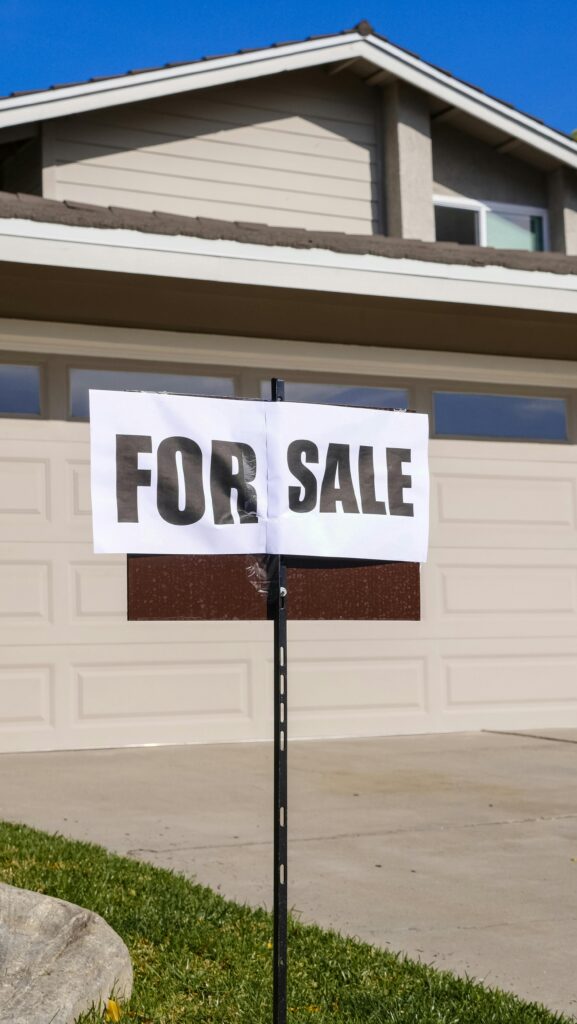As I reflect back on my work experience in the mortgage and construction industry, I would have to say the most uncomfortable position I have ever held was working in collections for a manufactured home lender. My company coined the position as ‘Financial Counselor.’ I think that term makes it sound nicer, but at the end of the day, I was a debt collector for loan default.
At times, I did feel like a financial counselor, and I felt like I was making a difference. However, it was not the type of interaction I had in mind with clients. I want you to let that sink in. If you are behind on your mortgage, please remember you are a client of your lien holder. It’s a mutually beneficial relationship. Yes, you borrowed money from an institution, but they wouldn’t be there without clients like you.
Guess what? The mortgage company doesn’t want to foreclose on your home because of loan default! That’s right. It costs a lot of money for them to foreclose. They have to pay for a collection agency, go through a lengthy legal process to take possession of the home, and then try to sell the home to recoup losses.
If you are in a situation where you are potentially going to fall behind on your mortgage or are already behind, here are a few suggestions—from a former debt collector.
Written by Jessica Winspear of New Again Houses® Knoxville
- What Is Mortgage Default?
- What Happens When You Default on a Mortgage?
- How Long Can You Default on a Mortgage?
- How Long Can You Default on a Mortgage Before Foreclosure?
- How to Get Out of Mortgage Default
- The Best Way to Get Out of Morgage Default
What Is Mortgage Default?
Mortgage default occurs when a borrower fails to make their scheduled mortgage payments. This often happens after several missed payments, putting the loan into delinquency. Defaulting can lead to serious consequences like foreclosure, where the lender takes possession of the property.
What Happens When You Default on a Mortgage?
When you default on a mortgage, the lender typically contacts you to discuss repayment options. If no resolution is found, the lender can initiate foreclosure proceedings, which may result in the sale of your home. During this time, you might also face fees and damage to your credit score.
How Long Can You Default on a Mortgage?
The length of time you can default on a mortgage before facing serious consequences varies. Typically, after missing 90 days of payments, lenders may begin foreclosure processes. However, reaching out to your lender early can often lead to a more manageable repayment plan.
How Long Can You Default on a Mortgage Before Foreclosure?
Foreclosure can begin after 90 days of non-payment, but the foreclosure timeline depends on the state’s laws and the lender’s policies. Some lenders might give you additional time to rectify the situation, while others may move more quickly, especially if no contact is made.
How to Get Out of Mortgage Default
1. Contact Your Lender
I cannot stress this enough. It is not comfortable. In fact, it can be downright scary, but I hope at this point you have an understanding that this is a consumer relationship. Not every person you speak with will be understanding, and I have heard plenty of negative stories that I’m sure you have as well. However, a financial institution is going to be more likely to work with you if you contact them before they contact you. They want to help you get out of loan default.
If you are still apprehensive about contacting them, there are non-profits and other organizations that will act as third-party mediators. There is actually a federal law mandating lenders to advise people of loss mitigation. The catch is you will already be behind at this point. However you choose to contact them, do it! I highly recommend you initiate the contact. No matter what the circumstance, they cannot work with you if you avoid them.

2. Develop a Plan of Action
You may be in a situation where you think ‘I have zero options,’ but you may be surprised. Start by evaluating what happened to put you in this situation. In my experience, more times than not, clients were headed towards loan default due to poor financial planning.
I suggest writing out your finances—income and bills. We called this a debt analysis. It was one of the first things we did with our customers with their consent. It sounds so simple, but it’s actually not. Unless you’re a Dave Ramsey guru, you probably don’t know where all of your money is going. I know I don’t. I guarantee there will be items you can cut out of your monthly spending. Tell me you can’t live without cable, and in the nicest way possible I will tell you to try having cable without a house. You must prioritize needs over wants, set goals, and stay disciplined.
You can find debt analysis templates online to fill out or download apps that will follow your spending. One of my favorite apps is Mint by Intuit. If you don’t want to use it through an app, you can also set up an account on your home computer. Mint will help you keep track of all of your finances by linking all of your accounts into one place—checking accounts, savings accounts, credit cards, loans, 401k, etc. It will let you set goals for yourself and give you easy-to-read pie charts of where your money is going every month.

3. Research National & Local Resources
This one goes hand in hand with a plan of action. Whether national or local, there are so many resources available to you! After evaluating a client’s situation, I would look into programs that would possibly be able to help them work out of loan default. I know this can be tough without any experience, but there are so many resources at your fingertips.
My first suggestion is the Hardest Hit Fund. It has over $7.6 billion of federal funding and is available in 18 states—including Tennessee and Virginia. They paid some of my client’s loans for up to 6 months! It’s a great resource and your mortgage company may even be willing to help you with the application process. There are multiple national resources, and this is just one example. You can get with your local chapter of the US Department of Housing and Urban Development (HUD) or the Consumer Financial Protection Bureau (CFPB) to learn about other resources available to you.
Tip: Don’t Be Scared to Look into Local Resources
I know it isn’t ideal to let organizations in your community know that you are struggling, but it can be very helpful both financially and emotionally. There are organizations that are there to help, and you just have to be willing to find them. Many organizations have funds set aside for local assistance. Some organizations may even be national chains with local chapters. Looking local can be one of the best options because people are more willing to help out their neighbors as opposed to an organization that isn’t giving back to the community.
I know getting behind on your mortgage can be a terrifying situation. I have seen people lose their homes over not communicating, not having a plan, or just not being willing to put in the work. More often though, I have seen people keep their homes, and most of the time it came down to these key steps. While it is easier said than done, I feel confident that if you are taking these three steps, you can prevent a tough situation. Please Note: If you feel you are being treated unfairly, you can submit a complaint to the CFPB (https://www.consumerfinance.gov/).
The Best Way to Get Out of Mortgage Default: Sell Your House Fast for Cash
Selling your house for cash can be a smart solution if you’re facing mortgage default and the risk of foreclosure. It’s one of the fastest ways to avoid the long-term financial consequences that come with defaulting on a loan. When you sell for cash, you’re able to bypass the lengthy listing process, avoid costly repairs, and eliminate the stress of waiting for a buyer’s financing to come through. This method can help you close the deal in as little as 7 days and give you the funds you need to pay off your outstanding mortgage balance and walk away without foreclosure damaging your credit.
There are several companies and investors that specialize in buying homes fast for cash, and many offer flexible terms that make it easy to finalize the sale on a short timeline. Cash buyers understand the urgency of your situation and are often willing to work with you to help prevent further financial loss.
If selling for cash is right for your situation, it can be the most effective way to get out from under the burden of a mortgage you can no longer afford. This will preserve your financial future and give you the freedom to move forward without facing foreclosure.
Find a reputable, experienced cash buyer in your area and see how they can help you get out of mortgage default.

Get Out of Mortgage Default & Sell Your Home to the Cash Buyers at New Again Houses
At New Again Houses, we specialize in helping homeowners facing mortgage default by offering quick cash home sales. Our experienced team understands the stress that comes with mortgage struggles, and we’re here to provide a fast and hassle-free solution. By choosing to sell your home to us, you can avoid the lengthy foreclosure process, protect your credit score, and walk away with the peace of mind that comes with resolving your mortgage issues.
We buy houses in as-is condition, meaning there’s no need for costly repairs or upgrades before selling. Our cash buyers can close on your home quickly and give you the financial relief you need without delay. Whether you’re looking to downsize, relocate, or simply move on from your current situation, New Again Houses® makes the process simple and transparent.
If you’re ready to explore your options and sell your home for cash, contact us today. We’re here to help you regain control of your financial future and avoid the long-term impacts of mortgage default.
1 comment
Comments are closed.